Literature
Read interesting literature and researches about micro-organisms

Abstract Plant performance is impacted by rhizosphere bacteria. These bacteria are subjected to both bottom-up control by root exudates as well as top-down control by...
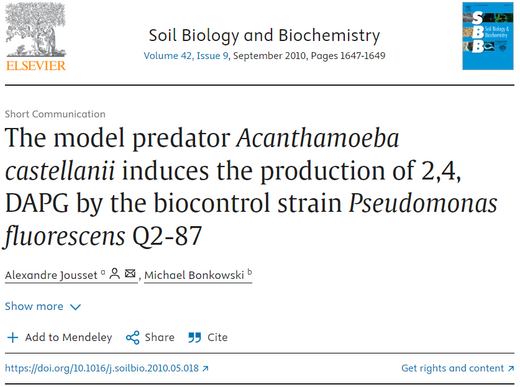
Abstract Fluorescent pseudomonads show great potential as biological control agents due to their capability to produce antifungal toxins such as 2,4-diacetylphloroglucinol (DAPG). DAPG is synthesized from the...
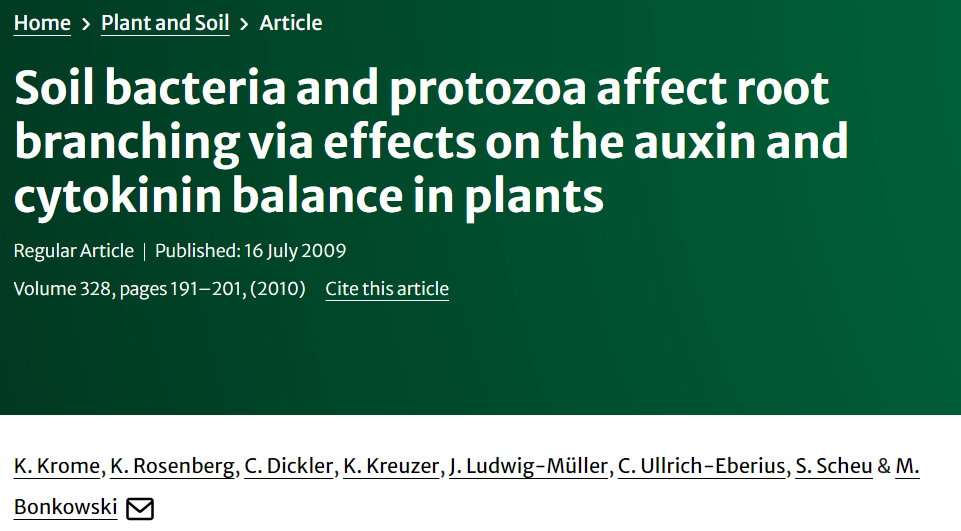
Abstract Lateral roots are crucial for the plasticity of root responses to environmental conditions in soil. The bacterivorous microfauna has been shown to increase root...
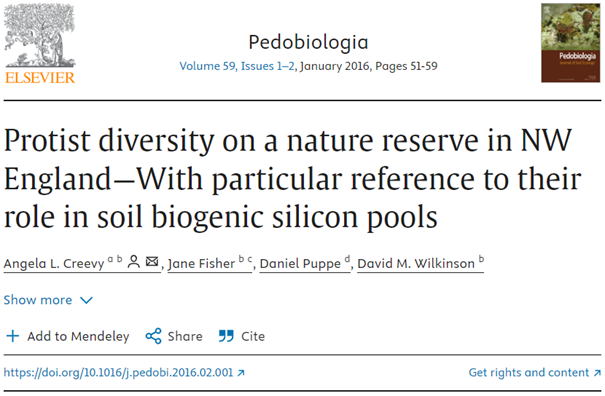
Highlights Considering only a few groups of microorganisms greatly increases the known diversity of a nature reserve. This microbial diversity is important in many ecological processes....

Abstract We asked the following question: Is the lack of attention given to testate amoebae, and other protists, in studies of nutrient cycling justified by...
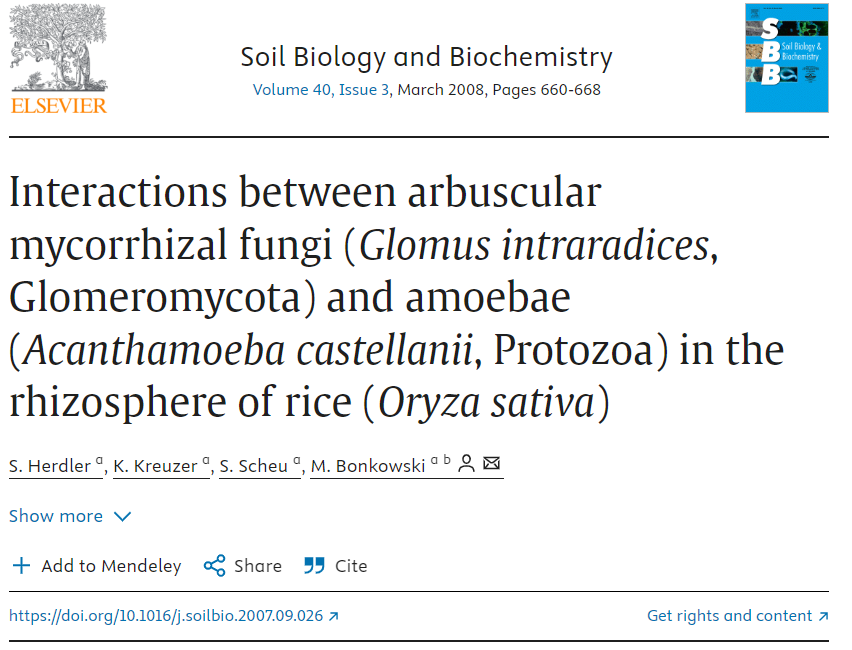
Abstract Rice plants (Oryza sativa L.) were grown in microcosms containing soil with a diverse bacterial community (control) and inoculated either with an axenic arbuscular mycorrhizal fungus (Glomus intraradices) or...
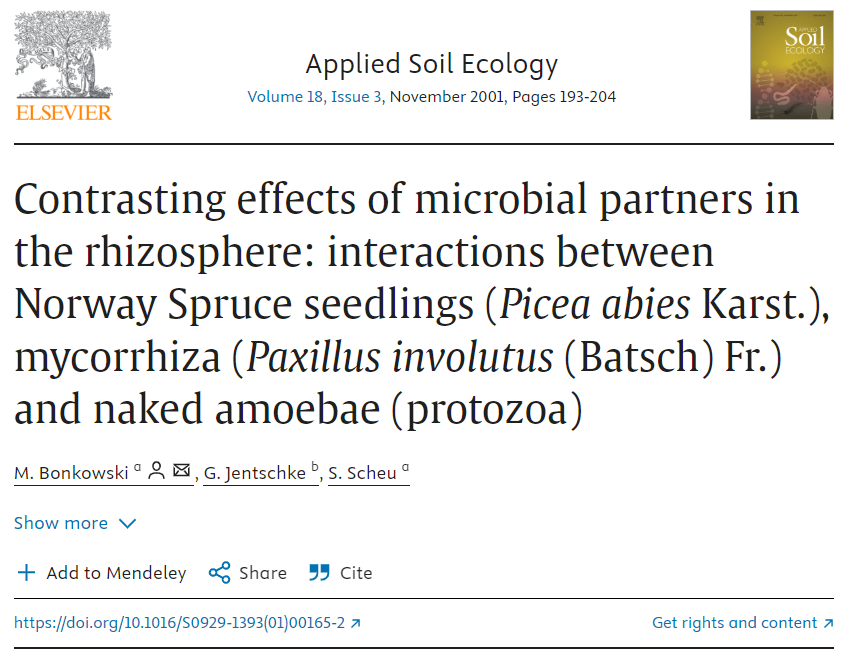
Abstract The importance of the soil microbial community for plant mineral nutrition and nutrient cycling has long been recognized. One of the most important interactions is the symbiosis of...
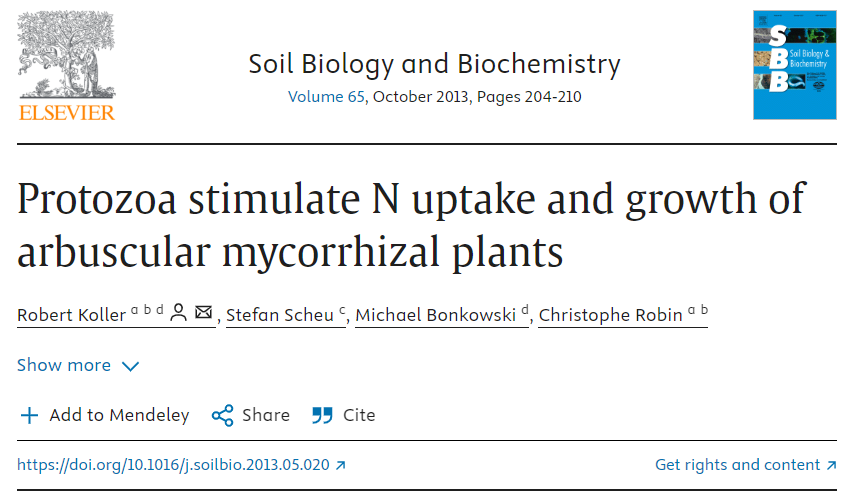
Highlights Arbuscular mycorrhizal (AM) fungi co-occur with protozoa in virtually any soil. Interactive effects of AM fungi and protozoa on plant growth are little known....
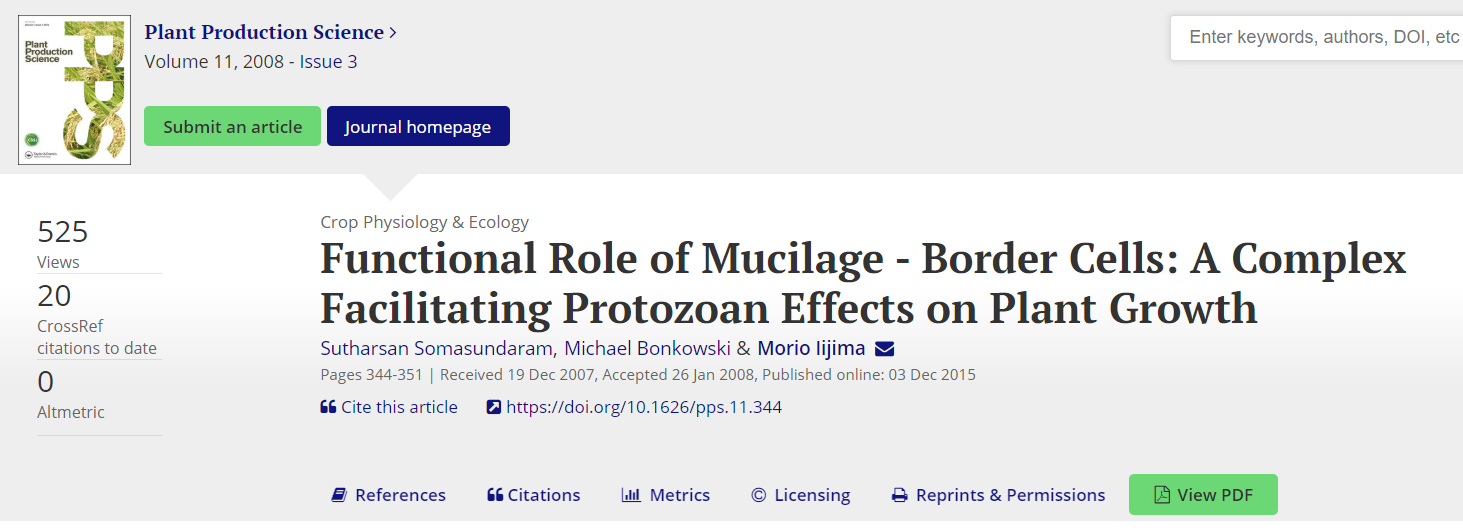
Abstract In rhizosphere soil, mucilage and root border cells (RBCs) form a functional entity, the mucilage border-cell complex (MB complex). Carbohydrates of the MB complex...

Abstract Plant residues provide a major source of nitrogen (N) for plant growth. Litter N mineralization varies with litter carbon-to-nitrogen (C-to-N) ratio and presence of...
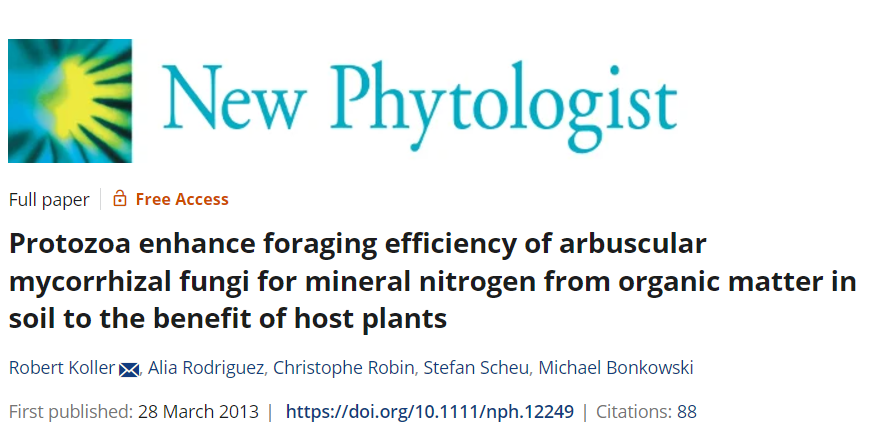
Summary Dead organic matter (OM) is a major source of nitrogen (N) for plants. The majority of plants support N uptake by symbiosis with...
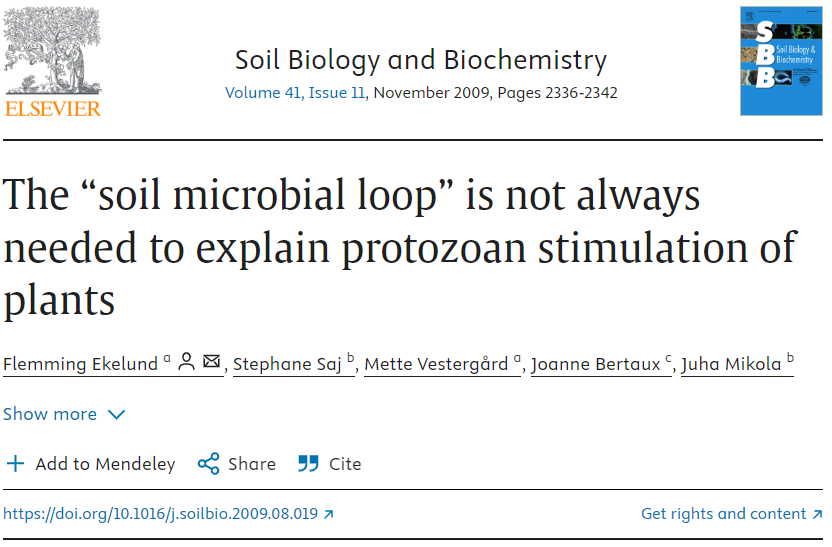
Abstract Protozoa stimulate plant growth, but we do not completely understand the underlying mechanisms, and different hypotheses seek to explain this phenomenon. To test these hypotheses,...
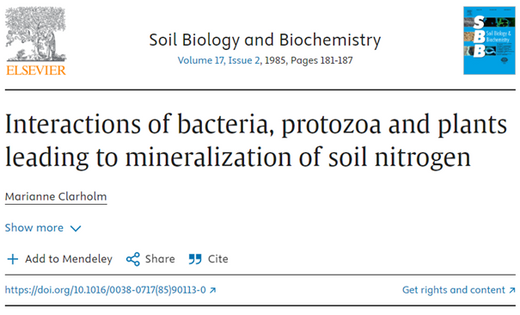
Abstract The capacity of bacteria and protozoa to mineralize soil nitrogen was studied in microcosms with sterilized soil with or without wheat plants. The effect...
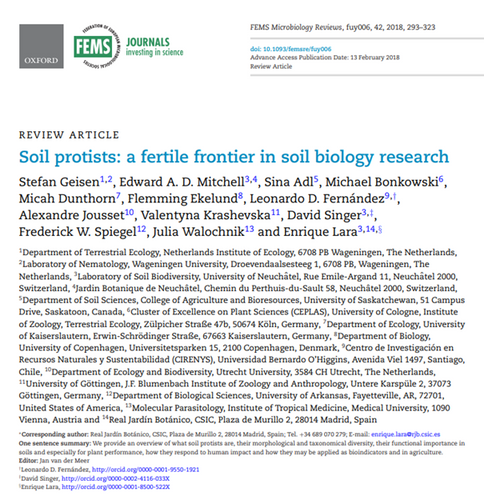
Abstract Protists include all eukaryotes except plants, fungi and animals. They are an essential, yet often forgotten, component of the soil microbiome. Method developments have...
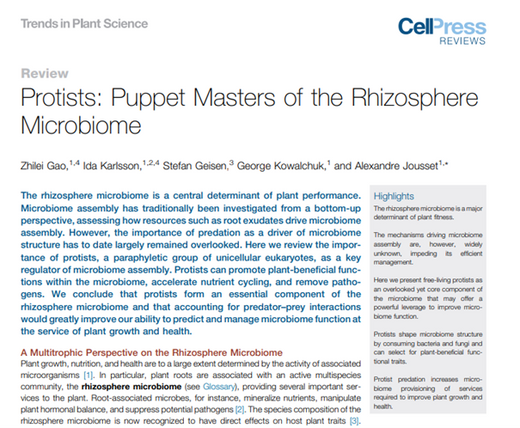
Highlights The rhizosphere microbiome is a major determinant of plant fitness. The mechanisms driving microbiome assembly are, however, widely unknown, impeding its efficient management. Here...